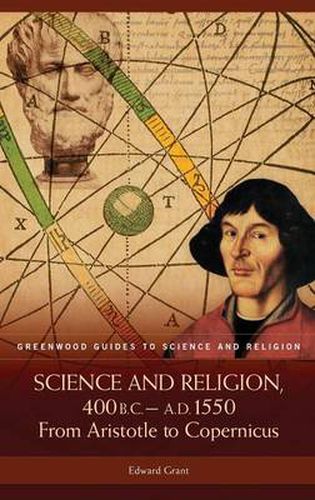Readings Newsletter
Become a Readings Member to make your shopping experience even easier.
Sign in or sign up for free!
You’re not far away from qualifying for FREE standard shipping within Australia
You’ve qualified for FREE standard shipping within Australia
The cart is loading…






Many people believe that during the Middle Ages Christianity was actively hostile toward science (then known as natural philosophy) and impeded its progress. This comprehensive survey of science and religion during the period between the lives of Aristotle and Copernicus demonstrates how this was not the case. Medieval theologians were not hostile to learning natural philosophy, but embraced it. Had they had not done so, the science that developed during the Scientific Revolution would not - and could not - have occurred. tudents and lay readers will learn how the roots of much of the scientific culture of today originated with the religious thinkers of the Middle Ages. Science and Religion, 400 B.C. to A.D. 1550 thoroughly covers the relationship between science and religion in the medieval period, and provides many resources for the student or lay reader: It discusses how the influx of Greek and Arabic science in the 12th and 13th centuries dramatically changed how science was viewed in Western Europe; and demonstrates how medieval universities and their teachers disseminated a positive attitude toward rational inquiry and made it possible for Western Europe to become oriented toward science. The volume includes primary documents and an annotated bibliography.
$9.00 standard shipping within Australia
FREE standard shipping within Australia for orders over $100.00
Express & International shipping calculated at checkout
Many people believe that during the Middle Ages Christianity was actively hostile toward science (then known as natural philosophy) and impeded its progress. This comprehensive survey of science and religion during the period between the lives of Aristotle and Copernicus demonstrates how this was not the case. Medieval theologians were not hostile to learning natural philosophy, but embraced it. Had they had not done so, the science that developed during the Scientific Revolution would not - and could not - have occurred. tudents and lay readers will learn how the roots of much of the scientific culture of today originated with the religious thinkers of the Middle Ages. Science and Religion, 400 B.C. to A.D. 1550 thoroughly covers the relationship between science and religion in the medieval period, and provides many resources for the student or lay reader: It discusses how the influx of Greek and Arabic science in the 12th and 13th centuries dramatically changed how science was viewed in Western Europe; and demonstrates how medieval universities and their teachers disseminated a positive attitude toward rational inquiry and made it possible for Western Europe to become oriented toward science. The volume includes primary documents and an annotated bibliography.